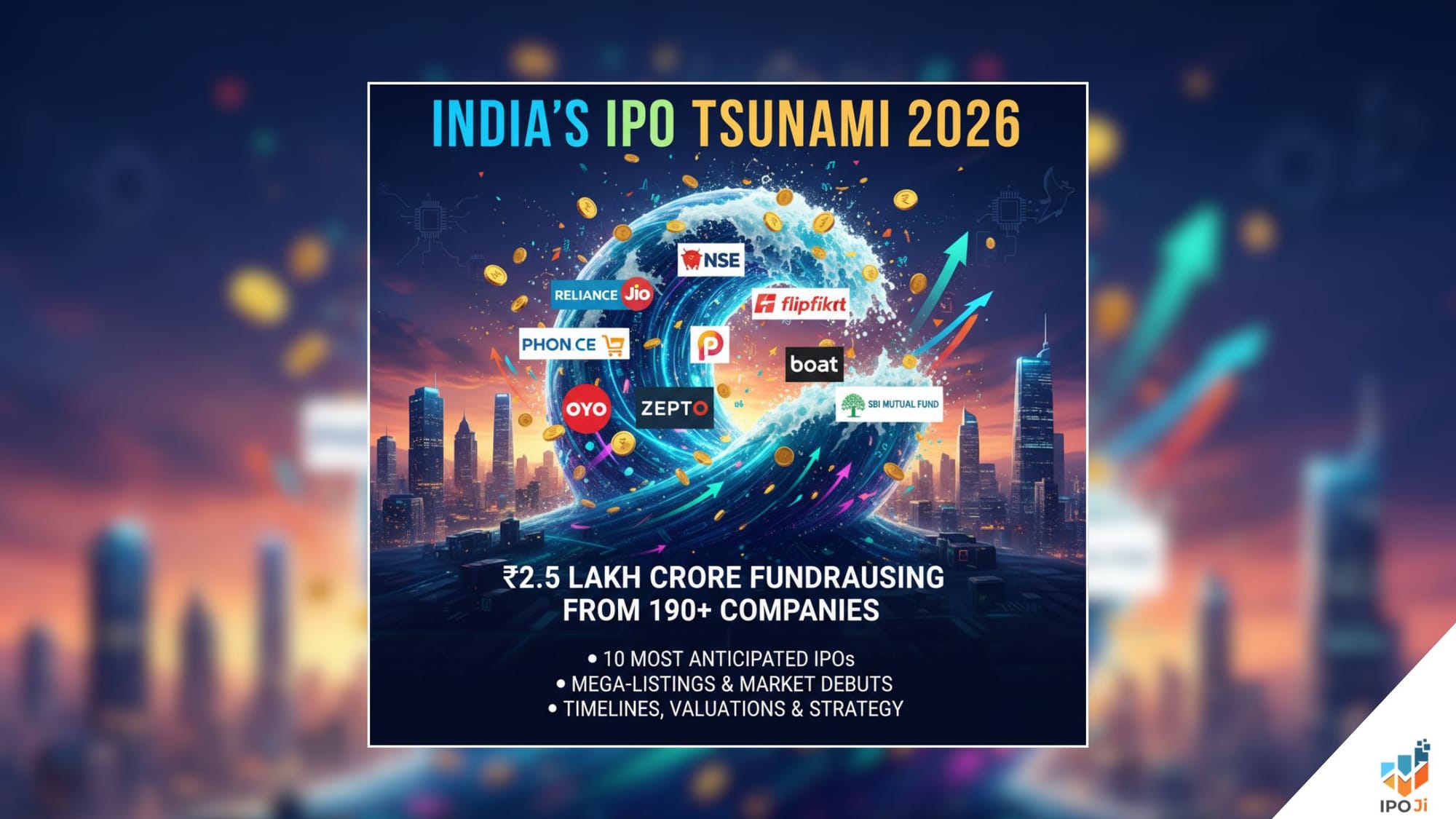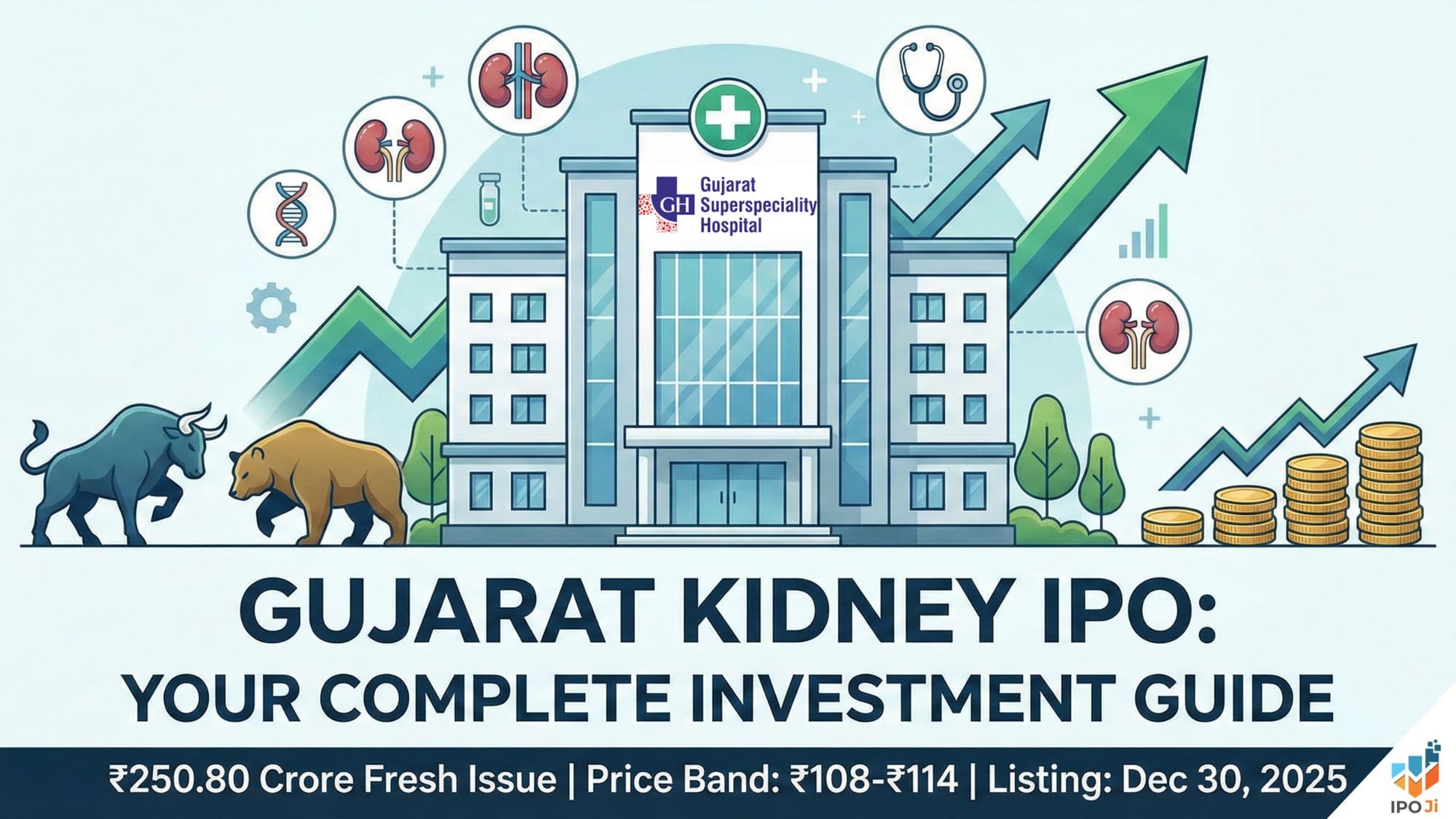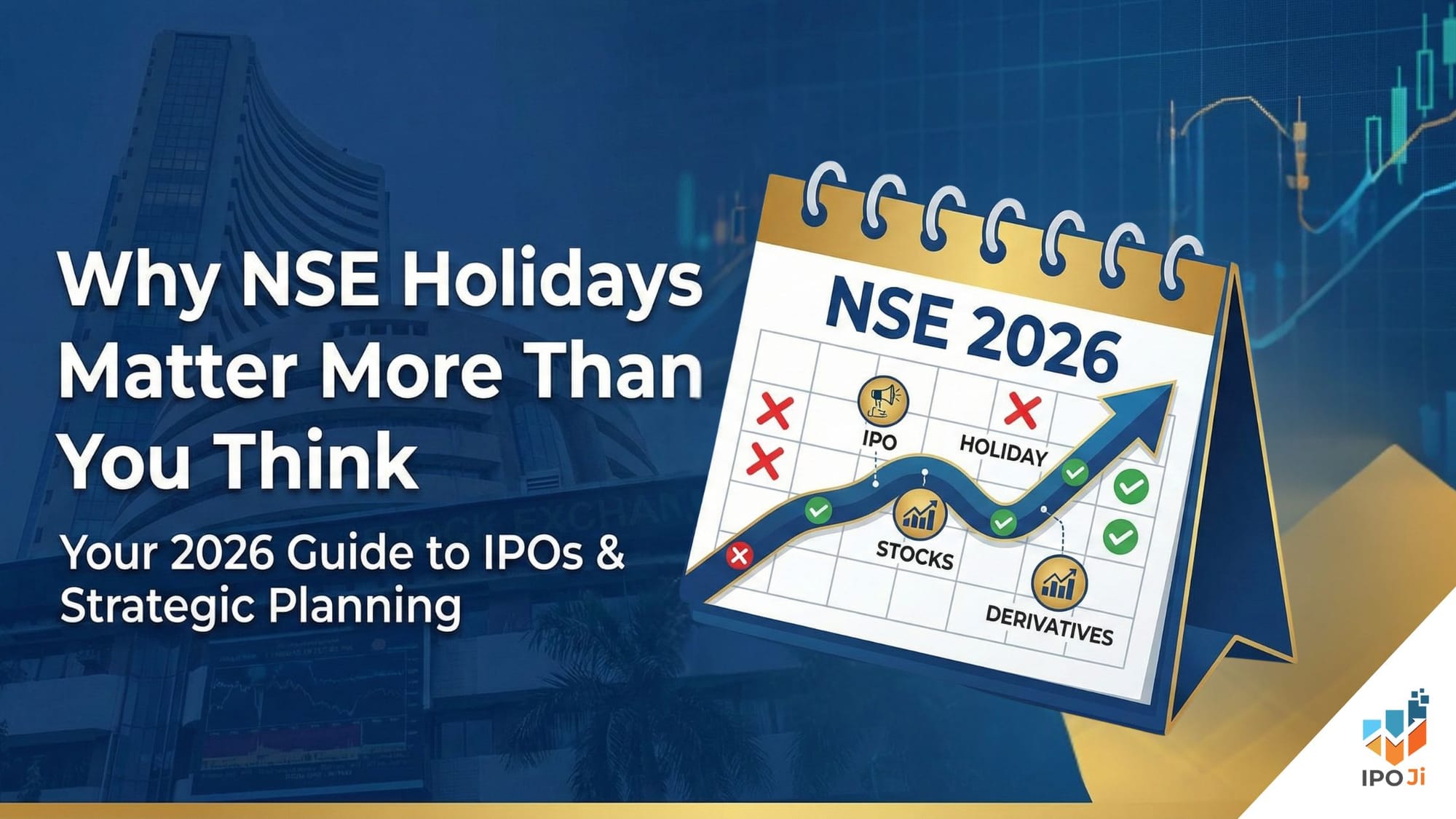IPO vs FPO: What’s the Difference between IPO and FPO?
In this blog, we shall differentiate an IPO (Initial Public Offering) from an FPO (Follow-on Public Offering) in a way that is simple, engaging, and easy to understand real-life Indian examples that will drive the point home.

If you have recently discovered the stock market, then you might have already come across terms like IPO and FPO. Although they sound similar in name, they happen to be pretty different in what they actually are and mean for investors like you. In this blog, we shall differentiate an IPO (Initial Public Offering) from an FPO (Follow-on Public Offering) in a way that is simple, engaging, and easy to understand real-life Indian examples that will drive the point home!
What is an IPO?
Actually, an IPO means that the shares of a company are offered to the public for the very first time. In other words, it is the grand entry of a company into the stock market. Just before the IPO, the shares of the company were held privately by founders, promoters, and just a few institutional investors. Now, with the help of the IPO, companies go public, and one can buy shares as an individual.
Let's take an example. Do you recall when Zomato went public in 2021? There was a huge buzz on all news portals all over. Zomato issued its IPO in order to raise funds from the public to expand its business. This was the first time shares were sold to retail investors such as us.
What is FPO?
An FPO is a buzzword in this scenario because it forms a company's foray into the stock market.
For that reason, an FPO is often called a "follow-on public offering" since the issuing company's securities are already listed on the stock exchange. It’s when a company, which is already public, issues more shares to raise additional capital. This could be to pay off debt, fund new projects, or increase its liquidity.
Real Life Example: Yes Bank floated an FPO in the year 2020 to increase the capital and stabilize the company's financials, after facing a few losses due to extreme financial strain. In that scenario, the organization was already listed on the public platform, but it needed more capital, so it issued more shares by floating an FPO.

Key Differences Between IPO and FPO
Let’s make it clearer with a quick comparison!

Why Should You Care About These IPO and FPO Differences?
Risk vs. Reward: Actually, IPOs tend to get less stable and while they might offer better returns if the company does exceptionally well (like Nykaa's 2021 IPO, which gave stellar returns), this means a high risk because it's a new stock. In comparison, FPOs can be a safer bet since the company already has a performance history.
Investment Strategy: If you are an aggressive investor wanting to earn higher returns while bearing risks, the IPO will be interesting enough for you. But if you want to stick to a safer investment with the potential to earn almost moderate returns then it is better to opt for FPO.
Timing: Knowing the difference helps you decide when to enter a stock. If you still haven't invested in the company at its IPO but have faith that the company has the potential, then you can invest by subscribing to an FPO.
Real-Life Case Study: Reliance Industries
Consider the case of Reliance Industries. Its IPO had come out all those years back in 1977, and through the passage of time, it became one of India's largest conglomerates. Now, imagine you had missed that IPO- obviously, but you needed a slice of the action!
Reliance did manage to raise more through rights issues and other follow-on offerings that permitted investors both new and old to buy the equities. That is somewhat similar to FPOs, whereby investors get a second bite of the company that they buy and which is growing.
Know the Game Before You Play
While IPOs and FPOs are a thrill in entering the stock markets with different objectives and levels of risk, far beyond understanding will guide you to smarter investment decisions.
Whether it is preparing for investment into the next big IPO or patiently sitting and waiting for that FPO to spike your interest, always remember that "there is an element of risk in every investment, so educate yourself, do your research, and invest wisely.
Also Read:
How to increase allotment chances | What is IPO? | Benefits of IPO




